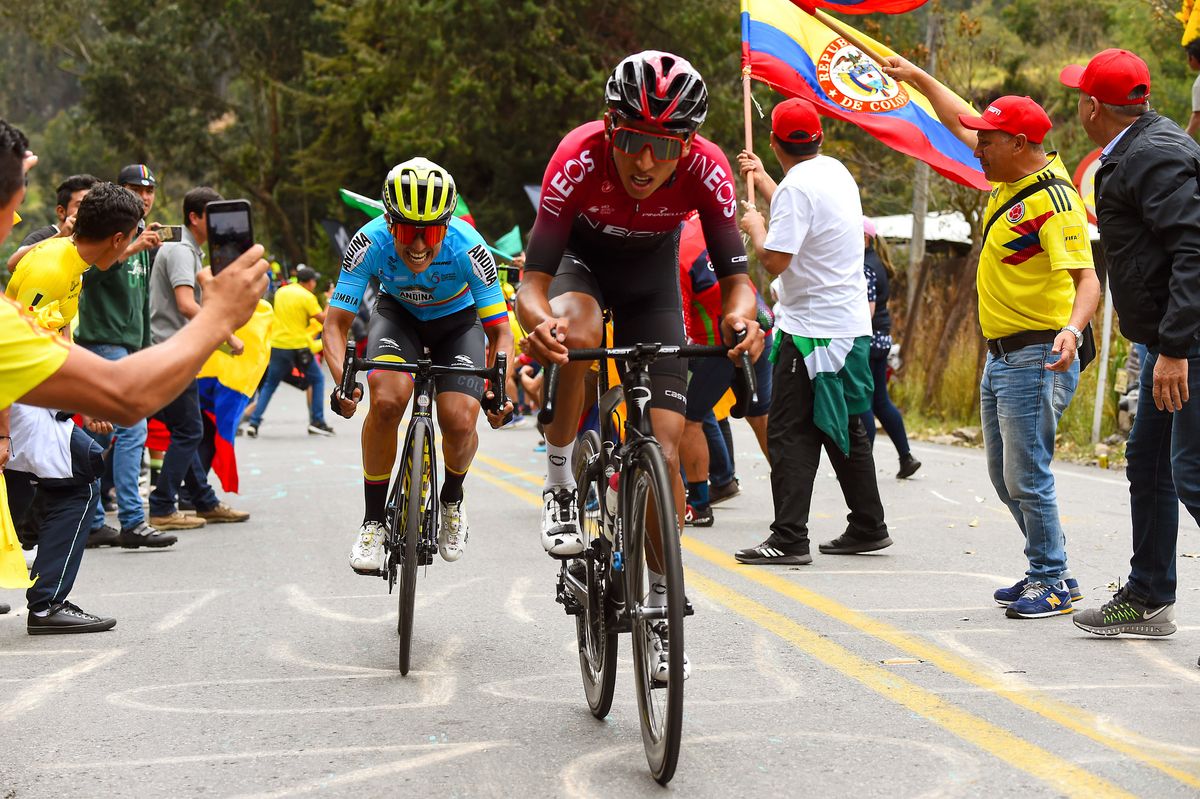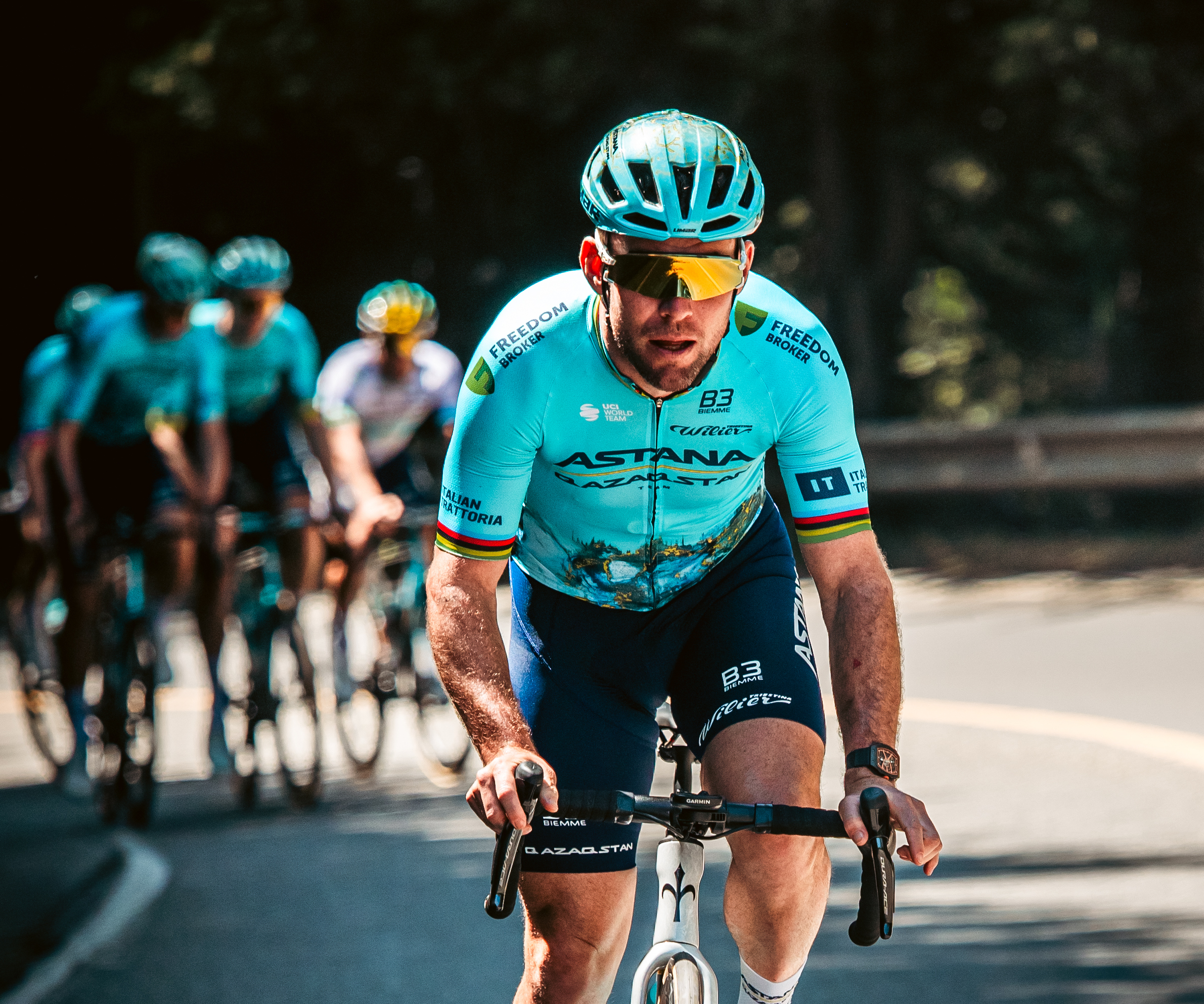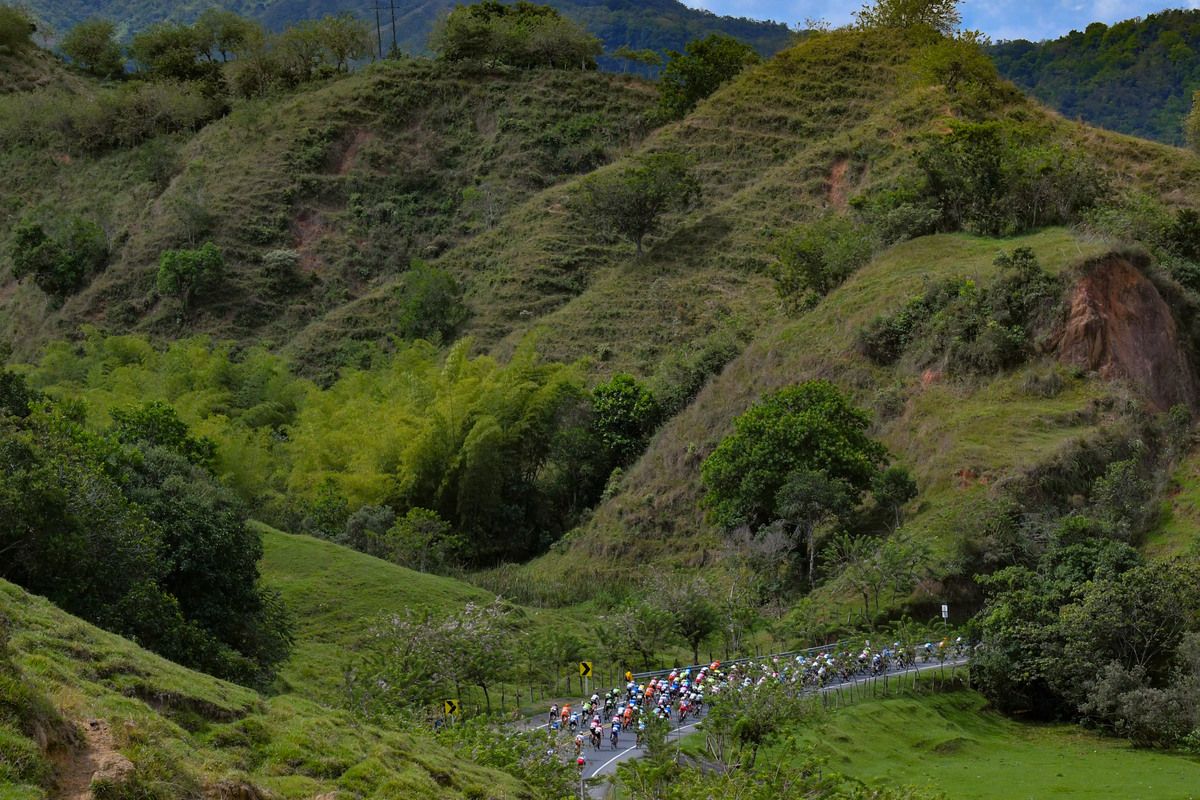
The lie of the land is rather different as the Tour Colombia returns to the calendar on Tuesday after a four-year absence. The passion for the sport in this corner of the world is as fervent as ever – witness the joyous multitudes in Duitama at last weekend’s national championships – but the skies are not quite as serene as they were in the spring of 2020.
Back then, just before the coronavirus pandemic took hold, Colombian cycling was at the zenith. Egan Bernal was the reigning Tour de France champion, and Nairo Quintana was beginning an apparent renaissance at Arkéa. Miguel Ángel López was the coming man of the mountains, and WorldTour teams were scrambling to identify and recruit emerging Colombian talent. Indeed, twelve months previously, before striking a deal with Ineos, Dave Brailsford had travelled to the country to investigate the prospect of securing a sponsor to replace Sky.
By last winter, the mood music had changed considerably, and sombre newspaper headlines spoke gravely of the end of Colombian cycling’s years of plenty. WorldTour squads’ growing preference for recruiting directly from the junior ranks in Europe and North America, allied to the demise of Manzana Postobón, had complicated the pathway for young Colombian talent, while some established stars were enduring travails of their own.
Bernal’s future was uncertain as he fought his way back from career-threatening injury. Quintana looked to be on the brink of retirement after testing positive for Tramadol on the 2022 Tour de France and failing to secure a contract. López was banished from the WorldTour due to his implication in Operation Ilex. Other members of the golden generation, meanwhile, were inching towards the end of their careers.
The absence of the Tour Colombia from the calendar only exacerbated the sense of drift. The race was cancelled in 2021 due to the pandemic, and shortfalls in funding prevented the Colombian Cycling Federation from resurrecting it in the years that followed. Its return in 2024 was confirmed too late to convince the bulk of the WorldTour squads to change their early-season programmes, but the organisation will hope that this year’s event will at least provide a foothold for future editions.
Most importantly, they have secured the presence of the most bankable stars of Colombian cycling. Nairo Quintana begins his second act at Movistar at the Tour Colombia, while Rigoberto Urán and Esteban Chaves line out in an EF Education-EasyPost squad that also includes Olympic champion Richard Carapaz of Ecuador. Although Ineos Grenadiers opted against adding the Tour Colombia to their programme, they have allowed Bernal and teammate Brandon Rivera line out for the Colombian national team.
Quintana and Bernal will inevitably dominate attention over the six-day race, and not only because the route traverses their respective home departments of Boyacá and Cundinamarca. For the nation’s two greatest riders of the 21st century, this edition of the Tour Colombia marks something of a reboot, a chance to lay down a marker before moving on to the campaign ahead in Europe.
When Quintana called a press conference in Bogotá a year ago, the assumption was that he had reached the end of the line. Even though he defiantly dismissed the idea of retirement that morning, his path back to the WorldTour looked impassable. Already persona non grata after his Tramadol positives, his appeal was hardly going to be heightened by a year on the sidelines.
Movistar’s difficulties in 2023, however, offered a route back in. Although Quintana endured a trying end to his time with the Holy Family in 2019, documented in excruciating detail by Netflix, Movistar struggled last season to offset the loss of Alejandro Valverde from both a sporting and commercial standpoint. Manager Eusebio Unzué and his backers reckoned that rehiring Quintana at a reduced rate was worth a punt. “We couldn't just sit back and do nothing,” he said last month.
After delivering a serviceable if unspectacular showing at the national championships last weekend, Quintana takes in his first real test at the Tour Colombia as he builds towards the Giro d’Italia. The summit finish on the Alto del Vino on the penultimate day should offer pointers as to what he might be able to achieve in his comeback year.
Bernal, meanwhile, arrives at the Tour Colombia buoyed by his bronze medal at the national championships road race, his first podium finish of any description since he claimed overall victory at the 2021 Giro d’Italia. His career was interrupted and his life changed by the horrific crash he suffered in training ahead of the 2022 season, and his very return to the professional peloton later that year was already a monumental achievement.
Although Bernal’s comeback suffered some false starts last year, he did manage to finish both the Tour and the Vuelta a España, a feat he hoped would serve as a foundation for improvement in 2024. Seriously challenging Vingegaard, Pogacar et al in July still seems most unlikely at this point, but Bernal’s spirited display in Duitama last week was a reminder of his talent and resolve.
This week’s race, which visits his native Zipaquirá on stage 4, offers a chance to take another stride forward. Bernal, like Colombian cycling at large, isn’t where he was in February 2020, but the outlook is more promising than it was a year ago. It’s something to build on.

Cavendish and the riders to watch
Following the demise of the Vuelta a San Juan, the Tour Colombia is the most prestigious stage race in the Americas, though the field is light on WorldTour talent compared to the previous three editions in 2018, 2019 and 2020. Even so, the star power at the Tour Colombia is not restricted to Quintana and Bernal. As one would expect with Telefónica’s commercial interests in the region, Movistar have sent a strong line-up that includes Ivan Sosa and Fernando Gaviria, who has the useful habit of winning early and often in 2.1 races in South America at this time of year.
Gaviria should be challenged in the sprints by Mark Cavendish, who arrived in Colombia over two weeks ago for a block of altitude training in Rionegro in the company of some key men from his Astana-Qazaqstan train, as well as Alexey Lutsenko The idea, coach Vasilis Anastopoulos explained, was to increase Cavendish’s aerobic capacity for the season ahead, and he is scheduled to return to altitude at Sierra Nevada ahead of the Tour.
Sprinting at more than 2,500m above sea level won’t favour Cavendish, of course, but the presence of Michael Mørkøv and Cees Bol is a clear sign that the Manxman isn’t lining out simply to make up the numbers. At the very least, it’s a chance to reacquaint himself with Mørkøv’s expert lead-out after a year apart.
EF Education-EasyPost are the third WorldTour team in action, and the event notionally serves as Urán’s last competitive outing on Colombian roads, though he has since expressed some misgivings about bringing an end to his career. The team’s GC challenge, meanwhile, looks likely to be carried by Carapaz. The Ecuadorian’s 2023 campaign was blighted by ill fortune, most notably his early Tour de France abandon, but he finished the season on an upbeat note and began the new campaign in similar fashion, cruising to a national time trial title.
Only two ProTeams – Bingoal WB and Corratec Vini Fantini – have made the journey from Europe, with the rest of the peloton composed of national squads and Continental outfits. The Colombian national team was initially expected to include Daniel Martínez and Sergio Higuita, but Bora-Hansgrohe opted against releasing them for duty, leaving Bernal as the outright leader.
The ongoing suspension of Miguel Ángel López, meanwhile, sees 47-year-old Oscar Sevilla lead Team Medellín, and the Spaniard is one of a number of familiar names on the start list. Jonathan Caicedo, released by EF at the end of 2023, is on hand for Gianni Savio’s Petrolike squad, and the Ecuadorian warmed up for this event with overall victory at the Vuelta al Táchira in Venezuela.
Sergio Henao, previously of Sky, UAE and Qhubeka, hasn’t entirely exited the stage since leaving the WorldTour in 2021, and he lines out for a Nu Colombia squad that also includes Rodrigo Contreras, once of QuickStep and Astana. Meanwhile, newly crowned Colombian champion Alejandro Osorio, fired by Bahrain Victorious in 2022 for “contract breaches” leads the line for GW Erco Shimano.
The route

While the longstanding Vuelta a Colombia has typically followed the remit of a national tour by covering as much of the country as its time frame allows, the new Tour Colombia has limited itself to a department or two at a time. In 2018, the maiden edition of what was then Colombia Paz y Oro focused on the (relatively) low-lying Valle del Cauca, while the race switched to Antioquia a year later.
The 2024 route roughly mirrors that of three years ago, with the race beginning in Boyacá before passing into neighbouring Cundinamarca, remaining well in excess of 2,000m above sea level for the duration of the event. At this altitude and at this early point in the year, just a week after the national championships, local riders will be to the fore.
In the three previous editions of the race after all, only two foreigners – Julian Alaphilippe and Bob Jungels – have managed to snag stage victories, while the final podium has been the preserve of Colombian and Ecuadorian riders.
The opening stage between Paipa to Duitama manages to avoid the climbing in the area and thus lends itself to the sprinters, but the GC men should already be to the fore on stage 2, which tackles the uphill finale to Santa Rosa de Viterbo where Higuita beat Bernal in 2020.
There is more rugged terrain on stage 3 to Tunja, though the flat run-in should present Gavira et al with another chance. Stage 4 brings the race into Cundinamarca for a finish in Bernal’s hometown of Zipaquirá before the pivotal leg to the Alto del Vino on the penultimate day. The ascent to the finish of stage 5 is some 30km in length, climbing to an altitude of 2,854m. That kind of altitude alone made the Alto Colorado a redoubtable challenge at the lamented Vuelta a San Juan, but this is an altogether more arduous test.
The final stage into Bogotá, meanwhile, could hardly be classed as a procession, with the peloton crossing the 3,000m-high Alto de Patios ahead of the final drop into the capital and the finish line outside the city’s national park.







